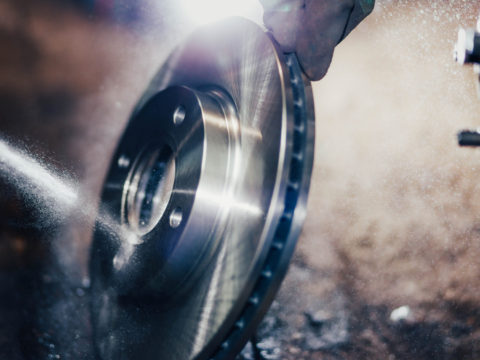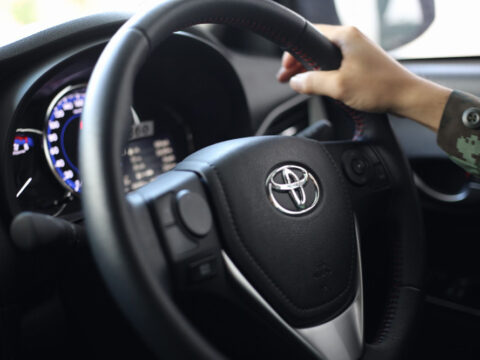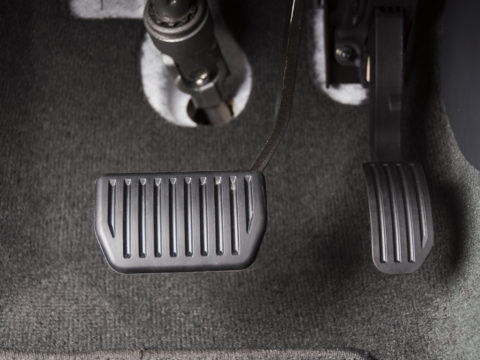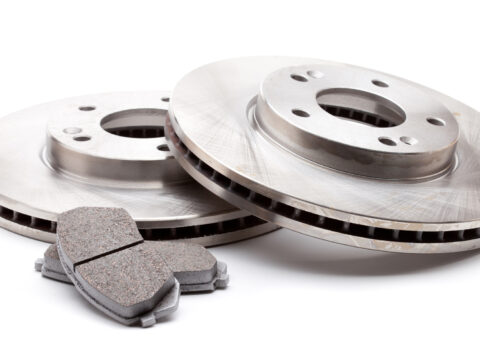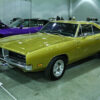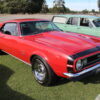If you’re hearing a grinding noise when you brake, it’s probably time for a new set of pads. But don’t worry. If your pads are still in good condition, they can last for quite a while longer.
In this blog post, we’ll look at some of the most common reasons why you are experiencing noise when braking, but your pads are fine.
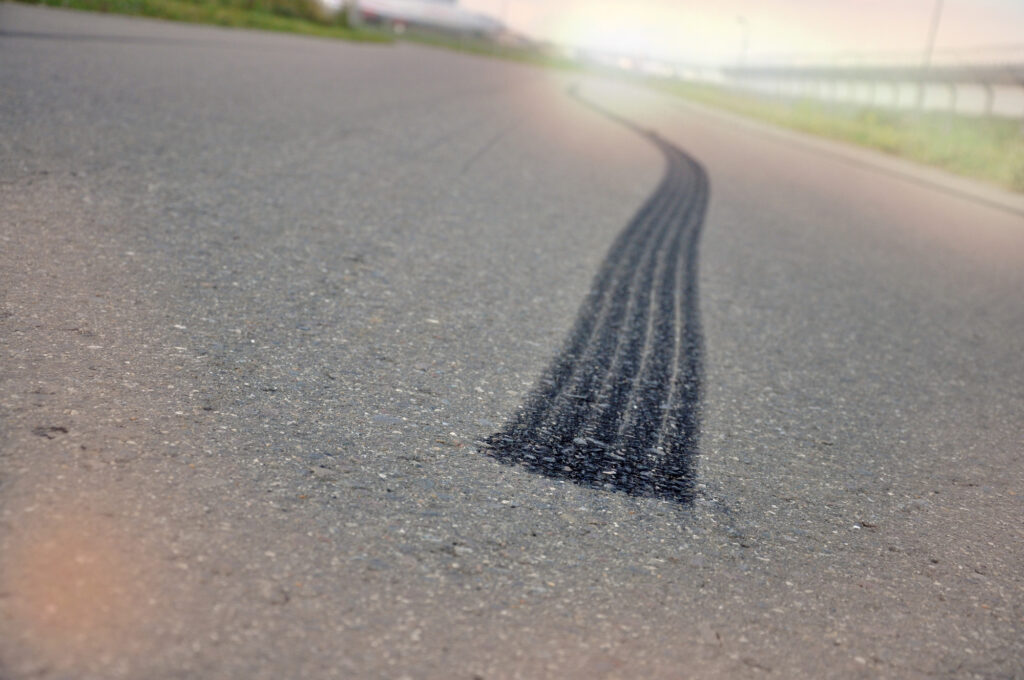
Contents
Why Are Brakes Grinding but Pads Not Worn?
If you’ve ever had your brakes grind, you know it’s not a pleasant experience. A few different things can cause brake grinding, but thankfully there are corrective measures you can take for each problem.
Knowing exactly how brake pads work could go a long way in helping you diagnose your brakes. Here are seven reasons your brake pads might be grinding even though they’re not worn out.
Worn Brake Rotors
If your brake rotors are worn, they won’t make proper contact with your brake pads, causing the pads to grind against the metal of the rotor. You’ll need to have your rotors replaced if this is the case.
Glazed Brake Pads
When brake pads get too hot, they can form a hard coating on their surface. This coating prevents the pads from making proper contact with the rotors, causing grinding.
You can fix glazed brake pads by sanding them down with fine-grit sandpaper until the glaze is gone.
Brake Pad Misalignment
Misaligned brake pads can cause grinding because they aren’t making proper contact with the rotor. This can be caused by a bent caliper or an uneven surface on the rotor itself.
You’ll need a mechanic to look at your brakes if they’re misaligned.
Loose Caliper Bolts
If your caliper bolts are loose, they won’t hold the caliper in place properly, causing it to move and grind against the rotor. You’ll need a mechanic to tighten or replace the bolts as required.
Contaminated Brake Fluid
If your brake fluid is contaminated, it can cause many problems, including brakes that grind even when they’re not worn out. The best way to deal with contaminated brake fluid is to have it flushed and replaced by a mechanic.
Warped Rotors
If your rotors are warped, they won’t make proper contact with your brake pads, causing grinding. You’ll need to have your rotors replaced if they’re distorted.
“Soft” Pedal
If you notice that your pedal feels “soft” when you press down on it, that means there’s too much travel before the brakes engage. A soft pedal can cause grinding because it gives the brakes more time to heat up and warp before they make contact with the rotors.
You’ll need to have a mechanic adjust your brakes to engage sooner.
While many of these situations can be frustrating, they’re all easily fixable with a little work (or money). So, if your brakes are starting to grind, don’t panic.
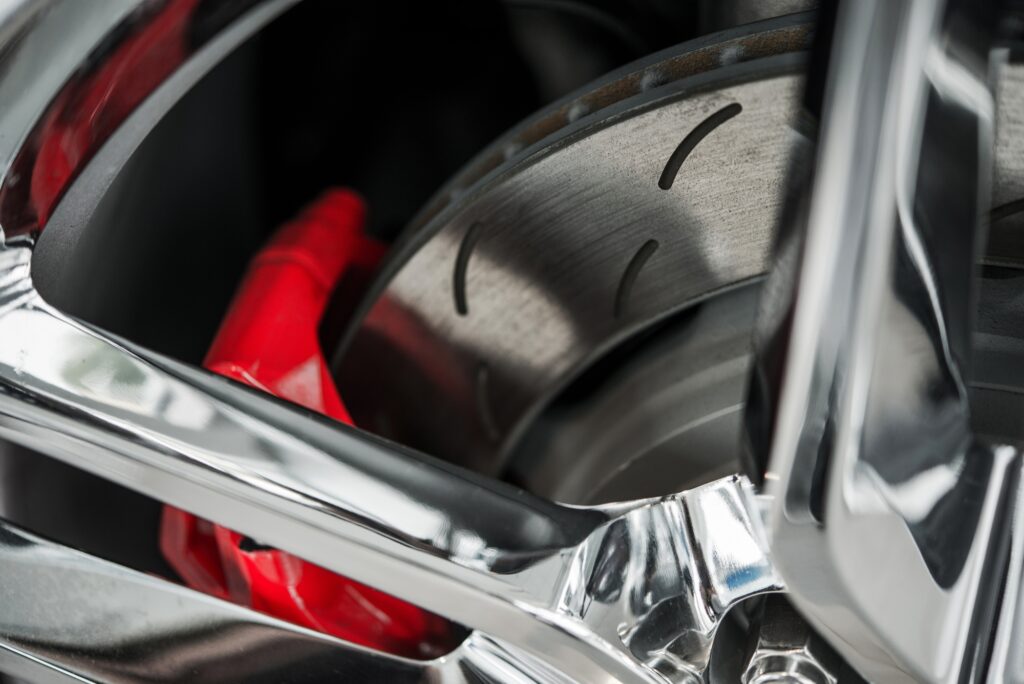
Why Do Brakes Only Grind Sometimes?
Brakes usually grind when something is wrong with the brake pads, the calipers, or the rotors. If the brake pads are too thin, they will rub against the rotors.
If the pads wear down over time or if they were not correctly installed in the first place, grinding can happen.
If the calipers stick, they may not release fully when you take your foot off the brake pedal, causing the pads to grind against the rotors.
Finally, if the rotors are damaged or warped, they may also cause the pads to grind. In most cases, you will need to have your brakes serviced by a professional mechanic to fix the problem.
Temporary and Permanent Fix for Grinding Brakes
If your car makes a grinding noise when braking, it could indicate that your brakes need attention. There are temporary and permanent fixes for this problem.
In most cases, the grinding noise is caused by brake pads that are too worn and need to be replaced. If you have a limited budget, you can temporarily fix the problem by applying some pressure to the brake pedal while driving.
The pad surfaces will push against the rotor and create more friction so that you can stop safely.
You can permanently fix the problem by replacing the brake pads and rotors, which involves removing the wheels of your car and removing the old parts.
You then install new brake pads and rotors and put everything back together. Whichever solution you choose, a qualified mechanic should do maintenance to ensure safe driving conditions for your vehicle.
Replace the Brake Pads
In many cases, the solution is as simple as replacing the brake pads. Most mechanics will start by inspecting the pads to see how much wear and tear they’ve suffered.
If the pads are still thick enough to make contact with the rotors, they may just need to be cleaned or realigned.
However, if the pads are too worn, they should be replaced. The mechanic will also check the condition of the rotors and may need to perform some level of repair or replacement.
Replace the Brake Rotors
One common problem that leads to grinding brakes is worn-out brake rotors. The brake rotors are the discs on which the brake pads clamp to create friction and stop the wheels from turning.
Learning how brake rotors work can help you know if yours are worn out.
Over time, the rotors can become warped or uneven, which causes the brake pads to grind against them instead of making smooth contact.
In most cases, the only way to fix this problem is to replace the brake rotors. It can be a costly repair, but it is usually more affordable than replacing the entire braking system.
Additionally, replacing the brake rotors is a relatively simple task that can be easily completed at home with essential hand tools.
Use a Higher-Quality Brake Pad Compound
If you’re experiencing grinding brakes, you’re likely using a low-quality brake pad compound. Switching to a higher quality compound can help to solve this problem.
Higher-quality compounds are generally more resistant to wear and tear, meaning they’ll last longer and won’t start to grind as easily. As a bonus, they also tend to be quieter than their lower-quality counterparts.
Adjust the Brake Caliper Piston
The caliper uses hydraulic pressure to squeeze the brake pads against the rotor when you press the brake pedal. Over time, the caliper seals can leak, allowing brake fluid to seep out and causing the caliper pistons to push too far back into the caliper housing.
As a result, the pads will no longer make complete contact with the rotor, causing a grinding noise when you try to stop. Fortunately, this problem can be easily fixed by simply readjusting the position of the pistons.
You can restore complete contact between the pads and the rotor by manually pushing the pistons back into place, eliminating the grinding noise and ensuring that your brakes are working correctly.
You can do this at home with a few tools. First, remove the brake pads from the caliper. Next, use a C-clamp or similar device to compress the piston into the caliper.
Once the piston is compressed, you can insert the new brake pads and reassemble the caliper. Finally, bleed the brakes to remove any air bubbles from the system.
Clean the Brake Caliper Slides and Pins
One potential cause of grinding brake pads is dirty or rusty brake caliper slides and pins. The caliper slides and pins allow the caliper to move and make contact with the rotor.
With clean calipers, your brake pads should last longer, and you shouldn’t hear any grinding when you apply the brakes.
If they become gummed with dirt and grime, they can stick, preventing the caliper from moving freely. This can cause the pads to rub against the rotor, leading to premature wear.
Cleaning the caliper slides and pins is a relatively simple task that you can do at home. Remove the wheels and clean any dirt and debris with a rag or brush.
Conclusion
Keeping your vehicle running well can be quite a job but hopefully, you’ve been able to troubleshoot your grinding noises with a little help. Don’t forget that a mechanic can help you fix anything you don’t feel confident doing on your own.

